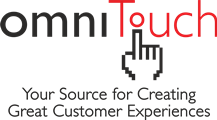THANKS DAN BUT DO YOU HAVE THE CONTACT CENTER METRICS FOR BPOs?
I’ll never forget it.
After a quality coaching class with a group of Team Leaders in the shared services group of a bank, one of the Participants sent me this email –
“Dan, I loved the course. I learned how to better coach my people. And I appreciated that you shared the high level metrics we can use to track progress.
But as you know, I work in a BPO setting. So those metrics don’t work for us.
Can you send me the metrics for BPOs?”
But there aren’t different metrics for BPOs
There aren’t different metrics for BPOs than for an in-house Center.
A Contact Center is a Contact Center. Whether BPO or in-house.
Even those places that still don’t want to call themselves a Contact Center – but actually often are.
The pool of operational Contact Center metrics is well understood.
What differs from Center to Center are the decisions around which metrics are selected, prioritized and pursued.
- In some Centers, the metric set choices are tangibly more Customer Experience oriented.
- In some Centres, the metric set choices are tangibly more cost or efficiency oriented. (And to say that the BPO Participants in this particular workshop were pummeled into efficiency wouldn’t be an exaggeration.)
- In some Centers, there are metrics choices that are just plain wrong from an operational standpoint. Even today when the Contact Center ecosystem is well understood.
But whatever these metric choices are – recognize that they represent one of the single most important decisions you will ever make.
As shared by a Customer Experience thinker some years back, people do what is measured, incentivized and celebrated.
And when you’re talking about Agents, Team Leaders & Team Managers, metrics are very top of mind.
These metrics – the ones that have been selected, prioritized and pursued – dramatically influence the mindset & performance of the people in your Center.
To the point where they – including the Participant who emailed me – believe that the way your Center works is just how it is across the entire Contact Center industry.
That the way you do things in your Center is the industry standard.
Without realizing that the Center down the road or three floors up in the same office tower, has different strategies & priorities than you do.
And, as a result, has chosen a different metrics set.
You have to know what your doing

People don’t go to school to become professionals in the Contact Center or Customer Experience industry.
Many learn on the job – from people who also learned on the job.
What I’ve personally seen over and over is when a new ‘big boss’ comes in and realizes that the level of strategic Contact Center know-how in the current Team isn’t sufficient to achieve organizational business objectives.
So they set about to change that.
The choices around metrics takes know-how, thought and contextualization to your Customer & Business ecosystem.
- Don’t just copy what someone else is doing.
- Don’t rely on non-existent or irrelevant industry standards.
- Don’t pursue the same things year after year without stopping to ask yourself why and if what you’re doing makes sense.
When I teach Operations Management work through all the metrics in easy to understand categories.
From there we begin to pull together the interrelationships that exist between metrics in the Center and even metrics for the Organization.
And perhaps my favorite part is when the Participants get together in groups and talk about how and why they’d design their Center metrics system. Based on everything they’ve learned up to this point.
The selection of metric sets for your Center is one of the most decisions you’ll ever make.
Because your choices have far reaching impact on the business results you will achieve.
And on the lives of the Employees & Customers that you serve.
It can’t get more important than that.
Thank you for reading!
Thank you for taking the time to read this today.
If you’d like to stay up to date on our articles, activities and offers just drop us your email address or add it to the contact form on our website.
Daniel Ord
[email protected] / www.omnitouchinternational.com






 Use a Scatter diagram, an Ishikawa diagram, financial modelling. Basically use whatever tool or method fits the purpose.
Use a Scatter diagram, an Ishikawa diagram, financial modelling. Basically use whatever tool or method fits the purpose. There are always impacts on other parts of the ecosystem.
There are always impacts on other parts of the ecosystem. Is that a good thing? Most Organizations would say no.
Is that a good thing? Most Organizations would say no.
 Even I can see how this might be seen as nitpicking. Or that it’s just a small thing.
Even I can see how this might be seen as nitpicking. Or that it’s just a small thing. Daniel Ord
Daniel Ord
 Towards the end of that wonderful 1939 film, Glinda the Good Witch of the North tells Dorothy that she always had the power to go home.
Towards the end of that wonderful 1939 film, Glinda the Good Witch of the North tells Dorothy that she always had the power to go home. Because what I’ve seen over and over is that the calibre of the Center – and by extension the calibre of organizational Customer Experience – is driven by the calibre of the leadership in charge.
Because what I’ve seen over and over is that the calibre of the Center – and by extension the calibre of organizational Customer Experience – is driven by the calibre of the leadership in charge. I appreciate the time you took to read this today!
I appreciate the time you took to read this today!




 In my last Finance role, I worked at a direct marketing company that sold music, children’s toys and gardening tools via TV commercials and catalogs.
In my last Finance role, I worked at a direct marketing company that sold music, children’s toys and gardening tools via TV commercials and catalogs. And no, you don’t have to do what I did. You don’t have to start your own company and spend $380,000.
And no, you don’t have to do what I did. You don’t have to start your own company and spend $380,000.

 If you’re running a Contact Centre or Customer Experience group and your folks need a PhD to understand a metric that’s supposed to guide their behavior, you’ve already got a problem.
If you’re running a Contact Centre or Customer Experience group and your folks need a PhD to understand a metric that’s supposed to guide their behavior, you’ve already got a problem. I sometimes find that people who are new to the industry have an easier time to stand up and ask, “Why do we do this? What is this report supposed to help us with? Is it actually helping?”
I sometimes find that people who are new to the industry have an easier time to stand up and ask, “Why do we do this? What is this report supposed to help us with? Is it actually helping?”

 Practice doesn’t make perfect, it makes permanent.
Practice doesn’t make perfect, it makes permanent. Or perhaps they just don’t have the depth of their own that enables them to successfully grow other people.
Or perhaps they just don’t have the depth of their own that enables them to successfully grow other people. I regularly meet Contact Centre Leaders who are literally brand new to the industry.
I regularly meet Contact Centre Leaders who are literally brand new to the industry.




 Early in my career in the 90s, I was Vice President of Call Centre & Distribution Operations for Heartland Music. Based in Los Angeles, it was the job that got me into the Contact Center & Customer Experience industry.
Early in my career in the 90s, I was Vice President of Call Centre & Distribution Operations for Heartland Music. Based in Los Angeles, it was the job that got me into the Contact Center & Customer Experience industry. But Conway Twitty was the surge to end all surges.
But Conway Twitty was the surge to end all surges. I’m not exactly sure why Conway Twitty was different. But we were now six weeks into the surge and his sales were still going up.
I’m not exactly sure why Conway Twitty was different. But we were now six weeks into the surge and his sales were still going up. If you’ve been a fair boss, you communicate honestly, and you have a
If you’ve been a fair boss, you communicate honestly, and you have a 



